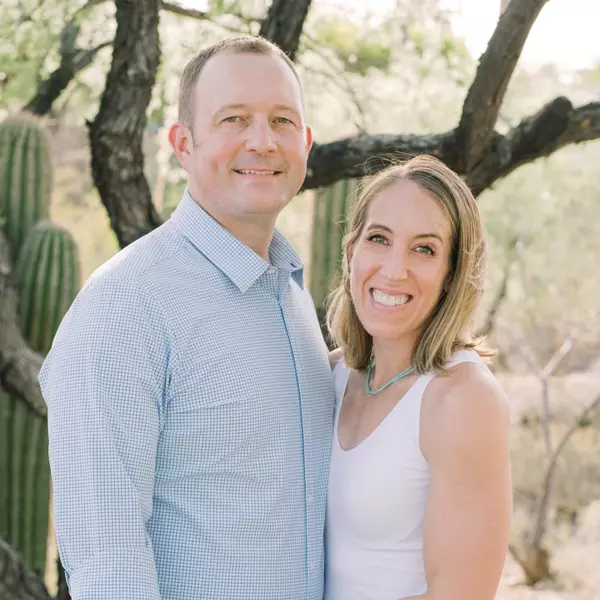What Probate Attorneys Do in Colorado: Expert Guide

Probate attorneys guide families through the legal process of settling a deceased person's estate. In Colorado, they handle court filings, creditor notifications, asset distribution, and property transfers while ensuring compliance with the Colorado Probate Code. Their primary role is protecting your interests while navigating complex legal procedures that most families face only once or twice in a lifetime.
When someone passes away in Colorado Springs, families often ask whether they actually need a probate attorney. The answer depends on the estate's complexity, whether real property is involved, and whether disputes exist among heirs. As someone who coordinates with probate attorneys throughout El Paso County, I've observed how the right legal guidance prevents costly mistakes during an already difficult time.
This guide explains what probate attorneys do in Colorado, when their services prove essential, and how they coordinate with real estate professionals during inherited property sales. Whether you're the personal representative of an estate or a beneficiary wondering about your rights, understanding the probate attorney's role helps you make informed decisions.
Every probate situation is unique. While these principles apply nationwide, Colorado Springs market conditions and Colorado laws create specific considerations.
Get a strategic roadmap through your transition addressing Life→Wealth→Real Estate in proper sequence. Scroll down to the end of this article for complete details on what you'll receive in your free 30-minute Transition Strategy Call.
Book Your Strategy Call → https://askweldonhobbs.com/
Core Responsibilities of Probate Attorneys in Colorado
Probate attorneys handle the entire legal process of estate administration under Colorado law. Their responsibilities extend far beyond simple paperwork—they provide legal representation throughout a complex court-supervised process.
Opening the Probate Estate
The probate attorney files the initial petition with the appropriate Colorado court, typically the district court in the county where the deceased person lived. This petition formally opens the estate and requests appointment of a personal representative (called an executor in other states).
In Colorado Springs, this means filing with the El Paso County District Court. The attorney prepares all required documentation, including the death certificate, original will (if one exists), and sworn statements regarding heirs and interested parties. They ensure compliance with C.R.S. § 15-12-301 through § 15-12-311, which govern venue, priority of appointment, and notice requirements.
Managing Court Filings and Deadlines
Probate operates under strict statutory deadlines. Probate attorneys track and manage these critical timelines, including creditor notification periods, inventory filing requirements, and final accounting deadlines. Missing a single deadline can delay the entire estate settlement or expose the personal representative to liability.
Colorado requires specific notices to creditors, beneficiaries, and sometimes the Department of Human Services. The attorney ensures each notice contains the required language, goes to the correct parties, and meets publication requirements when necessary. They also respond to claims filed by creditors and advise on which claims the estate must pay.
Identifying and Valuing Estate Assets
One of the attorney's crucial early tasks involves helping identify all estate assets. This includes obvious items like bank accounts and real estate, but also life insurance policies, retirement accounts, digital assets, business interests, and personal property with significant value.
For real property in Colorado Springs, the attorney coordinates with appraisers to establish fair market value as of the date of death. This valuation matters for both estate tax purposes and equitable distribution among beneficiaries. When property must be sold, the attorney ensures the sale process follows court requirements and protects the estate's interests.
When You Need a Probate Attorney in Colorado
Not every Colorado estate requires an attorney, but certain circumstances make legal representation essential rather than optional. Understanding when to hire a probate attorney protects both the estate and the personal representative from costly mistakes.
Real Property Ownership
If the deceased owned real estate in Colorado—whether a home in Colorado Springs, vacant land, or rental property—hiring a probate attorney becomes strongly advisable. Real property transfers require specific legal procedures, title work, and often court approval before sale.
Colorado law provides simplified procedures for smaller estates under C.R.S. § 15-12-1201, but these simplified procedures specifically exclude real property. When a house or land is involved, the full probate process typically applies, making professional legal guidance valuable.
Estate Value Above $80,000
Colorado allows collection of personal property by affidavit for estates valued under $80,000 with no real property. Above this threshold, formal probate generally becomes necessary, and navigating formal probate without an attorney risks procedural errors that delay settlement.
The $80,000 threshold applies to personal property only—it doesn't include real estate, vehicles, or assets passing outside probate through beneficiary designations. A probate attorney assesses whether the estate qualifies for simplified procedures or requires formal administration.
Disputes Among Beneficiaries or Creditors
Family conflict over estate distribution makes legal representation essential. When beneficiaries disagree about asset division, challenge the will's validity, or question the personal representative's actions, an attorney protects the estate and ensures proper legal procedures.
Similarly, when creditors file claims the personal representative believes are invalid or when determining which debts the estate must pay, legal expertise prevents both overpayment and potential liability. Probate attorneys negotiate with creditors and defend against improper claims.
Navigating probate with inherited property requires both expertise and strategic timing. In my 20+ years helping families through estate transitions, I've seen how the right strategy makes all the difference.
Get a roadmap through your transition addressing Life→Wealth→Real Estate. Complete details on your free 30-minute Transition Strategy Call are at the end of this article.
Schedule Your Call → https://askweldonhobbs.com/
How Probate Attorneys Coordinate with Real Estate Professionals
When inherited property must be sold, probate attorneys work closely with real estate professionals who understand the unique requirements of probate sales. This coordination ensures the sale meets both legal requirements and achieves optimal financial outcomes for beneficiaries.
Court Approval Requirements
Colorado probate law sometimes requires court approval before selling estate real property. The probate attorney advises whether approval is necessary, prepares the required petition, and handles the court hearing. They ensure the sale terms protect the estate's interests and comply with fiduciary duties.
Real estate agents specializing in probate sales understand these court requirements and structure offers accordingly. The attorney reviews purchase agreements before court submission, ensuring contingencies and timelines accommodate the legal process. This coordination prevents transaction failures due to procedural misunderstandings.
Title Issues and Deed Preparation
Probate attorneys work with title companies to resolve any title defects before sale. They prepare or review the personal representative's deed, ensuring it contains the required legal language and properly conveys the property from the estate to the buyer.
In Colorado Springs, this often involves confirming the deceased held clear title, resolving any liens or encumbrances, and ensuring proper legal descriptions. When multiple heirs inherit property, the attorney coordinates the distribution of proceeds according to the will or Colorado intestacy laws.
Protecting All Parties During the Transaction
The probate attorney's role includes protecting the personal representative from liability while ensuring beneficiaries receive their rightful inheritance. They advise on pricing strategy—the personal representative must obtain fair market value but can't unreasonably delay sale.
This creates a balance between maximizing estate value and completing the probate process within a reasonable timeframe. Real estate professionals who regularly work with probate attorneys understand this balance and provide realistic market guidance that serves the estate's best interests.
Costs and Fee Structures for Probate Attorneys
Understanding probate attorney fees helps families budget appropriately and avoid surprises during estate administration. Colorado law allows reasonable compensation for legal services, but the specific fee structure varies by attorney and estate complexity.
Hourly Rates vs. Flat Fees
Most Colorado probate attorneys charge hourly rates ranging from $250 to $450 per hour, depending on experience and location. Colorado Springs rates typically fall in the middle of this range. Complex estates with disputes or litigation can require 50-100+ hours of legal work.
Some attorneys offer flat fee arrangements for straightforward estates with no disputes. These flat fees might range from $3,500 to $7,500 for routine probate administration. The flat fee provides cost certainty but typically excludes extraordinary services like litigation or complex tax issues.
Additional Costs Beyond Attorney Fees
Estate administration involves costs beyond legal fees. Court filing fees in Colorado typically run $200-$300 for opening probate. Publication costs for creditor notices add another $100-$200. Property appraisals, accounting services, and title work create additional expenses paid from estate assets.
When real property is sold, standard closing costs apply, including title insurance, transfer taxes, and recording fees. The probate attorney ensures all costs are properly allocated and accounted for in the estate's final accounting to the court.
When Attorney Fees Are Worth the Investment
While probate attorney fees represent a significant estate expense, the cost of mistakes often exceeds legal fees by substantial margins. Procedural errors can delay estate closure by months or years. Improper creditor handling can expose the personal representative to personal liability.
For estates with real property in Colorado Springs, the attorney's guidance on property sales typically recovers their fee through better pricing strategy and faster transaction completion. The peace of mind knowing an expert handles complex legal procedures provides value beyond mere financial calculations.
National Equivalent: Probate Attorneys Throughout the United States
While this guide focuses on Colorado practices, probate attorneys serve similar functions nationwide. Every state has probate laws governing estate administration, and attorneys in each jurisdiction guide families through their state's specific requirements.
State probate procedures vary significantly. Some states require all estates to go through formal probate regardless of size. Others offer simplified procedures for small estates with higher thresholds than Colorado's $80,000 limit. Certain states allow independent administration with minimal court supervision, while others require detailed court oversight.
The fundamental role remains consistent: probate attorneys protect the estate, ensure legal compliance, handle court filings, manage creditor claims, and guide property transfers. They coordinate with local real estate professionals who understand their state's probate sale requirements.
If you're dealing with an estate in another state, seek an attorney licensed in that jurisdiction. Probate law is state-specific, and attorneys must be familiar with local court procedures, statutory requirements, and common practices in their area. Through my nationwide referral network, I can connect you with probate-savvy real estate professionals in any state who work regularly with local probate attorneys.
Key Takeaways
Ready to Take the Next Step?
Whether you're in Colorado Springs or anywhere across the nation, I'm here to help you navigate probate and inherited property decisions with confidence.
AI tools and blog posts provide information, but your situation deserves personalized guidance from someone who's been through this hundreds of times. As a USAFA graduate, PMP, and CFP with 20+ years of experience, I specialize in helping families turn transition challenges into strategic opportunities.
What You'll Walk Away With from Your Free 30-Minute Transition Strategy Call:
Sometimes the best advice is "don't move yet." As a transition strategist first and real estate professional second, I'll tell you what's truly best for your long-term outcome—not just the fastest transaction.
Book Your Free 30-Minute Strategy Call → https://askweldonhobbs.com/
Sources
This guide draws from my 20+ years of experience coordinating with probate attorneys throughout Colorado Springs and El Paso County. I work alongside legal professionals to help families navigate inherited property sales during estate administration.
The information presented reflects general Colorado probate practices and procedures under the Colorado Probate Code (C.R.S. Title 15, Articles 10-17). Specific legal requirements vary by estate circumstances, and this guide does not constitute legal advice.
For your specific situation, consult with a licensed Colorado probate attorney who can review your estate documents and provide guidance tailored to your circumstances. As a real estate professional specializing in transition properties, I coordinate with—but do not replace—the legal expertise provided by probate attorneys.
Categories
- All Blogs (288)
- cobb county probate court (1)
- colorado springs military move timeline (2)
- franklin county probate court (1)
- lock VA loan rate (1)
- probate explained (1)
- probate implications (1)
- probate meaning (3)
- probate process explained (1)
- probate real estate (4)
- texas first time buyer programs (1)
- va loan credit score requirements (1)
- VA loan rates, (1)
- va loan requirements (5)
- : va loan requirements (1)
- 3.5 down payment (2)
- 4th Judicial District probate (1)
- 55 plus communities (1)
- 55+ housing (1)
- active adult communities (1)
- age-restricted communities (1)
- Air Force Academy housing (2)
- air force academy housing colorado springs (1)
- Arizona probate process (1)
- assumable va loan (4)
- assume a va loan (1)
- assume va loan (1)
- assume VA mortgage (1)
- avoid probate (1)
- BAH home buying Fort Carson (1)
- bah peterson sfb (1)
- benefit of using va loan (1)
- best realtor colorado springs (1)
- best realtor in colorado springs (1)
- brokerage colorado springs (1)
- build home va loan el paso county (1)
- build house with VA loan (1)
- buy home with VA loan (1)
- buyer assistance comparison (1)
- buyer assistance programs (2)
- buyer grant qualification (2)
- buyer program types (1)
- buyer readiness (2)
- Buying (11)
- buying first home (1)
- ca first time home buyer program (1)
- CalHFA (3)
- CalHFA grants (1)
- california estate planning attorney (1)
- certificate of eligibility (1)
- CHFA down payment assistance (2)
- CHFA programs colorado springs (1)
- Cleveland probate court (1)
- Colorado estate administration (1)
- Colorado probate (1)
- colorado probate legal fees (1)
- colorado probate process (1)
- Colorado probate real estate (1)
- colorado springs estate planning real estate (1)
- colorado springs estate planning services (1)
- colorado springs estate sale timing (1)
- Colorado Springs first time buyer tax benefits (1)
- colorado springs first time home buyer (1)
- colorado springs first time home buyer programs (1)
- colorado springs gi bill home buying (1)
- colorado springs housing market (1)
- colorado springs inherited home sale timing (1)
- colorado springs inherited property (2)
- Colorado Springs IRRRL (1)
- Colorado Springs military buyer tax credits (1)
- colorado springs military foreclosure prevention (1)
- colorado springs military friendly neighborhoods (1)
- colorado springs military home buying (1)
- colorado springs military housing (2)
- colorado springs military new construction (1)
- colorado springs military retirement relocation (1)
- colorado springs military spouse real estate (2)
- colorado springs neighborhoods (1)
- colorado springs pcs timeline real estate (1)
- colorado springs probate (5)
- Colorado Springs probate attorney (1)
- colorado springs probate attorney fees (1)
- Colorado Springs probate costs (2)
- colorado springs probate vs trust (1)
- Colorado Springs property protection (1)
- colorado springs property transfer (1)
- Colorado Springs Real Estate (30)
- colorado springs real estate market (1)
- colorado springs realtor (1)
- colorado springs realtor companies (1)
- colorado springs tricare housing (1)
- colorado springs trust administration real estate (1)
- colorado springs va loan first time buyer (1)
- colorado springs va loan refinance (1)
- colorado springs veteran retirement (1)
- colorado transfer on death deed (1)
- Colorado trust real estate (1)
- compare VA lenders (1)
- construction loan va loan (1)
- conventional loan (2)
- cost of probate lawyer colorado springs (1)
- county probate (2)
- county probate court (3)
- county probate court timeline (1)
- county probate documents (1)
- county probate help (1)
- county probate procedures (1)
- county probate process (1)
- current va loan rates (4)
- current va loan rates today (3)
- current VA mortgage rates (1)
- current VA rates (3)
- current veterans loan rates (1)
- Cuyahoga County estate administration (1)
- cuyahoga county probate court (2)
- Death (5)
- Detroit probate court (1)
- discount realtor (1)
- Divorce (2)
- divorce and selling house (1)
- divorce equity split calculator (1)
- divorce home buyout calculation (1)
- divorce home sale (1)
- divorce house buyout calculator (1)
- divorce property division (2)
- divorce real estate (2)
- down payment assistance (14)
- down payment assistance trade-offs (1)
- down payment grants (4)
- down payment help (3)
- down payment programs (2)
- Downsize (2)
- downsizing checklist (1)
- downsizing home checklist (1)
- downsizing house timeline (1)
- downsizing tips (1)
- downsizing to a smaller home (1)
- dying without will (1)
- el paso county down payment assistance (1)
- El Paso County estate (1)
- El Paso County estate administration (1)
- el paso county estate lawyer cost (1)
- El Paso County estate planning (2)
- el paso county estate settlement (1)
- el paso county first time buyer (1)
- El Paso County home buyer deductions (1)
- El paso county inherited property (1)
- el paso county pcs housing (1)
- El Paso County probate (3)
- el paso county probate attorney fees (1)
- el paso county probate court (4)
- el paso county probate court filing (1)
- el paso county probate court process (1)
- el paso county probate fees (1)
- el paso county probate process (1)
- el paso county probate real estate (1)
- el paso county probate timeline (1)
- el paso county real estate (1)
- El Paso County trust (1)
- El Paso County VA cash out (1)
- El Paso County VA IRRRL (1)
- el paso county va loan (1)
- El Paso County VA refinance (1)
- el paso county will probate requirements (1)
- Estate (6)
- estate administration (7)
- estate administration Hamilton County (1)
- estate attorney (9)
- estate attorney cost (1)
- estate decision-making (1)
- estate home sale (1)
- estate lawyer (3)
- estate lawyer near me (1)
- estate lawyer selection (1)
- Estate Planning (22)
- estate planning attorney (4)
- estate planning attorney near me (1)
- estate planning Colorado (1)
- estate planning lawyer (2)
- estate planning legal help (1)
- estate planning near me (1)
- estate planning services (1)
- estate probate (5)
- estate probate attorney (1)
- estate property sale (2)
- estate settlement (2)
- estate settlement attorney (1)
- estate settlement colorado (1)
- estate settlement timeline (1)
- FHA loan (2)
- fha loan first time buyer (2)
- FHA loans (1)
- fha mortgage insurance (2)
- fha vs conventional (1)
- final PCS (1)
- financial planning (1)
- first home purchase Colorado taxes (1)
- first time buyer agent (1)
- first time buyer assistance (3)
- first time buyer grants (2)
- first time buyer help (4)
- first time buyer loans (1)
- first time buyer mortgage (1)
- first time buyer programs (5)
- first time buyer tax credit (1)
- first time buyer taxes (1)
- first time home buyer (2)
- first time home buyer assistance (2)
- first time home buyer assistance in texas (1)
- first time home buyer assistance programs (4)
- First time home buyer assistance texas (1)
- first time home buyer california (2)
- first time home buyer fha loan (2)
- first time home buyer finance (1)
- first time home buyer fl (1)
- first time home buyer florida (1)
- first time home buyer grants (6)
- first time home buyer grants california (2)
- first time home buyer grants texas (1)
- first time home buyer help (1)
- first time home buyer in california (1)
- first time home buyer in florida (1)
- first time home buyer information texas (2)
- first time home buyer loans (1)
- first time home buyer programs (8)
- first time home buyer programs california (1)
- first time home buyer realtor colorado springs (1)
- first time home buyer tax credit (2)
- first time home buyer texas (1)
- first time homebuyer texas (1)
- first-time buyer (1)
- first-time buyer assistance (1)
- first-time buyer checklist (2)
- first-time buyer down payment (1)
- first-time buyer programs (1)
- first-time buyer requirements (1)
- Firsttimehomebuyer (4)
- flat fee realtor colorado springs (1)
- florida attorney probate (1)
- florida first time home buyer (1)
- forgivable grants (1)
- fort carson bah (1)
- Fort Carson BAH Colorado Springs (1)
- fort carson family housing market (1)
- Fort Carson first home (1)
- fort carson housing (4)
- fort carson housing allowance (1)
- Fort Carson inherited property (1)
- Fort Carson neighborhoods (1)
- fort carson pcs real estate planning (1)
- fort carson peterson space force base (1)
- Fort Carson real estate (2)
- Fort Carson realtor (1)
- Fort Carson refinance (1)
- Fort Carson refinancing (1)
- fort carson to peterson sfb transfer (1)
- fort carson va loan (2)
- fort carson va loan rates (1)
- free money for first time buyers (2)
- Georgia probate (2)
- GI Bill housing (1)
- grant programs (2)
- grants for first time home buyer (1)
- grief and real estate (1)
- Hamilton County probate process (2)
- hiring a realtor (1)
- hiring a realtor questions (1)
- home buyer assistance (2)
- home buyer grants (3)
- home buyer programs by state (1)
- home buyer tax credit programs (1)
- home buying assistance (3)
- home buying preparation (2)
- home financing options (1)
- home mortgage rates va loan (2)
- home purchase tax credit (1)
- homebuyer assistance (1)
- homebuyer financing (1)
- homebuyer grants (1)
- homebuyer programs (2)
- homebuyer tax benefits (1)
- housing assistance (2)
- housing grants (2)
- how much probate attorney (1)
- how probate works (1)
- how to choose a realtor colorado springs (1)
- how to interview a realtor (1)
- how to qualify for grants (2)
- inherited home sale (1)
- inherited house colorado springs (1)
- inherited property colorado springs (3)
- inherited property taxes (1)
- intestate succession (1)
- investment property realtor (1)
- investor friendly realtor (1)
- Life Transitions (20)
- LOAN (4)
- loan first time home buyer (2)
- local estate planning (1)
- lock VA loan rate (2)
- low commission realtor (1)
- Maricopa County estate administration (1)
- maricopa county probate court (1)
- marital home buyout (1)
- meaning of probate (3)
- Michigan probate process (1)
- military deployment property management colorado springs (1)
- military families El Paso County (1)
- military family Colorado Springs (2)
- military family estate planning colorado (1)
- military family probate (1)
- military first time buyer Colorado Springs (1)
- military first time home buyer colorado (1)
- military friendly realtor (1)
- military home buying (1)
- military home buying Colorado Springs (1)
- military home sale (1)
- military housing Colorado Springs (2)
- military housing strategy (1)
- military mortgage (1)
- military mortgage rates colorado springs (1)
- military move frequency (1)
- military pcs (1)
- military pcs real estate (1)
- military realtor colorado springs (1)
- military refinance Colorado (1)
- military relocation (1)
- military retirement colorado springs (1)
- military retirement PCS (1)
- military spouse buying home (2)
- military transfer colorado springs (1)
- mortgage calculator va loan (2)
- mortgage credit certificate (1)
- mortgage options first time buyer (1)
- mortgage rate today va loan (1)
- mortgage rates va loan (1)
- mortgage types for first time buyers (1)
- moving to a smaller house (1)
- navy federal va loan rate colorado springs (1)
- neighborhoods near Peterson SFB (1)
- oconus pcs, military overseas assignment (1)
- off-base housing Peterson (1)
- Ohio probate procedures (1)
- Ohio probate process (1)
- overseas pcs (1)
- PCS changes (1)
- pcs military moves (1)
- pcs orders (1)
- pcs overseas (1)
- pcs property management (1)
- pcs real estate decision, military move real estate options (1)
- PCS realtor colorado springs (1)
- pcs retirement (1)
- PCS selling strategy (1)
- pentagon military pcs moves reduction (1)
- permanent change of station (1)
- personal finance (1)
- personal finance advisor (1)
- personal finance reddit (1)
- personal finance subreddit (1)
- personal finance subreddit real estate (1)
- peterson sfb deployment property management (1)
- peterson sfb housing (1)
- peterson sfb housing rental (1)
- Peterson SFB probate (1)
- Peterson SFB realtor (1)
- Peterson SFB refinance (2)
- peterson sfb temporary duty housing (1)
- peterson sfb va loan (2)
- Peterson SFB VA refinance (1)
- peterson sfb waiting list housing (1)
- Peterson Space Force Base housing (3)
- peterson space force base pcs timing (1)
- peterson space force base rental property (1)
- Peterson Space Force Base TDY lodging (1)
- Phoenix probate court (1)
- Probate (37)
- probate attorney (7)
- probate attorney cost (1)
- probate attorney fees (1)
- probate attorney near me (1)
- probate atty (1)
- probate court (3)
- probate court attorney (1)
- probate court colorado springs (1)
- probate court cuyahoga county (1)
- probate court explained (1)
- probate court franklin county (1)
- probate court hamilton county (2)
- probate court of cobb county (1)
- probate court procedures (1)
- probate court process (1)
- probate court processing time (1)
- probate court real estate (2)
- probate court timeline (1)
- probate definition (6)
- probate filing requirements (1)
- probate hamilton county (1)
- probate law attorney (2)
- probate law lawyer (1)
- probate lawyer (5)
- probate lawyer Colorado Springs (1)
- probate lawyer fees (1)
- probate lawyer fees colorado (1)
- probate lawyer near me (1)
- probate legal fees (1)
- probate legal help (1)
- probate meaning (2)
- probate mind (1)
- probate mindset (1)
- probate no will (1)
- probate process (7)
- probate property sale (1)
- probate property transfer (1)
- probate real estate (1)
- probate real estate colorado springs (1)
- probate real estate sales (1)
- probate real estate timeline (1)
- probate timeline (1)
- probate timeline colorado (1)
- program for first time home buyer (2)
- questions to ask realtor colorado springs (1)
- r/personalfinance (1)
- r/personalfinance advice (1)
- real estate brokerages (1)
- real estate companies colorado springs (1)
- real estate investor agent (1)
- realtor certification (1)
- realtor colorado springs (1)
- realtor commission (1)
- realtor credentials (1)
- realtor fees colorado springs (1)
- realtor firms (1)
- realtor for first time buyers (1)
- realtor in colorado springs (1)
- realtor interview questions (1)
- realtor job description (1)
- realtor responsibilities (1)
- realtor reviews (1)
- realtor services (1)
- Reddit financial advice (1)
- Reddit personal finance advice (2)
- rental property agent (1)
- rental property realtor colorado springs (1)
- Renting (3)
- retire colorado springs military (1)
- retire from military (1)
- right-sizing home (1)
- rightsizing home checklist (1)
- schriever colorado homes (1)
- schriever real estate (1)
- Schriever refinancing (1)
- schriever sfb housing (1)
- schriever space force base area homes (1)
- schriever space force base housing timeline (1)
- self-representation probate (1)
- sell inherited house (1)
- Selling (22)
- selling house during divorce (2)
- selling house during probate (1)
- selling inherited property (1)
- senior communities (1)
- short-term rentals near Peterson (1)
- simplified probate (1)
- stark probate (1)
- state assistance (3)
- state buyer assistance programs (1)
- state down payment assistance (1)
- state estate planning (1)
- state first-time buyer programs (2)
- state homebuyer grants (1)
- state homebuyer programs (2)
- state housing assistance (1)
- state housing grants (1)
- state housing programs (3)
- Strategy (20)
- taking over VA loan (1)
- TDHCA my first texas home (1)
- temporary housing Peterson SFB (1)
- texas down payment assistance (2)
- texas first time buyer programs (1)
- texas first time buyer requirements (1)
- texas first time home buyer (1)
- texas home buyer grants (1)
- today va loan rates (2)
- today's va rates (1)
- top rated realtor (1)
- top rated realtor colorado springs (1)
- top realtor colorado springs (1)
- top realtors colorado springs (1)
- tricare prime colorado springs (1)
- trust administration Colorado Springs (1)
- trust lawyer (1)
- trusted realtor (1)
- underwriting stipulations (1)
- UPC probate (1)
- USAA mortgage (1)
- USAA VA loan (2)
- USAFA family estate (1)
- USAFA home refinance (2)
- usafa va loan (1)
- VA (5)
- va assumption process (1)
- VA benefits El Paso County (1)
- VA construction loan (1)
- va construction loan colorado springs (1)
- VA eligibility (2)
- VA entitlement (1)
- VA home loan (1)
- VA home loan broker (1)
- va home loan criteria (1)
- va home loan eligibility (1)
- va home loan rate (1)
- va home loan rates (1)
- va home loan rates today (1)
- va home loan requirements (1)
- va interest rate (1)
- VA loan advantages (1)
- VA loan approval conditions (1)
- VA loan APR (1)
- va loan assumable (2)
- va loan assumption (4)
- VA loan benefits (1)
- VA loan calculator (1)
- VA loan conditions (1)
- va loan credit score requirements (1)
- va loan criteria (2)
- va loan current rates (2)
- va loan eligibility (3)
- va loan eligibility colorado springs (1)
- VA loan estimate (1)
- va loan home (1)
- VA loan house (1)
- VA loan interest rate (1)
- va loan interest rates (7)
- VA loan interest rates now (1)
- va loan interest rates today (1)
- VA loan lender (1)
- VA loan lenders (2)
- va loan monthly payment calculator (1)
- va loan mortgage broker (1)
- VA loan payment (1)
- va loan percentage rate (1)
- va loan qualifications (4)
- va loan rates (10)
- va loan rates colorado springs (1)
- va loan rates currently (1)
- va loan rates navy federal (1)
- va loan rates today (3)
- VA loan realtor (1)
- va loan service requirements (2)
- va loan stipulations (1)
- va loan usaa (2)
- VA mortgage calculator (1)
- VA mortgage payment (1)
- VA mortgage rate (2)
- va mortgage rates (9)
- va mortgage rates now (1)
- va mortgage rates today (3)
- VA mortgage specialist (1)
- VA new construction (1)
- va one time close loan colorado (1)
- VA rate timing (1)
- VA vs conventional rates (2)
- veteran loan rates (1)
- veterans affairs loan eligibility (2)
- veterans mortgage rates (2)
- Wayne County estate administration (1)
- wayne county probate court (2)
- wayne county probate court michigan (1)
- Wealth and Homeownership (10)
- wealth management (1)
- what does a realtor do colorado springs (1)
- what does probate mean (1)
- what does probate mean colorado springs (1)
- what is a probate (1)
- what is probate (4)
- what is probate court (1)
- what is uniform probate code (1)
- what probate means (3)
- what realtors do (1)
- what to ask a realtor (1)
- why use VA loan (1)
- will attorney (1)
- wills and trusts lawyer (1)
Recent Posts











Colorado Springs Realtor® | License ID: FA.100106710
+1(719) 684-6694 | weldon@teamhobbsrealty.com
